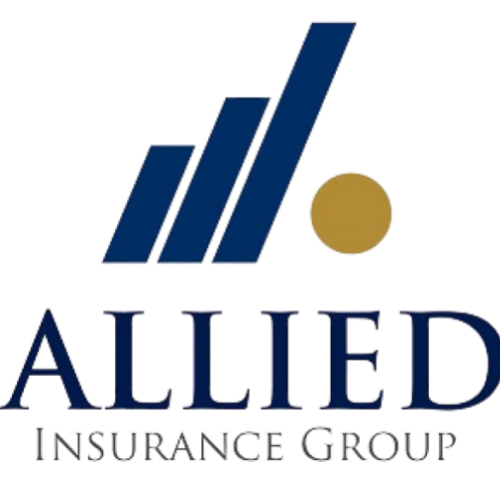Dealing with home repair emergencies is something every homeowner will encounter at some point. Whether it’s a sudden leak or a power outage, these emergencies can be daunting if you’re not prepared. In Florida, where unpredictable weather can often exacerbate common household problems, knowing how to handle these situations is especially important. Having a plan can turn a potentially stressful experience into a manageable task, allowing you to protect your home and minimize any long-term damage.
One key factor in ensuring you’re ready for these emergencies is having appropriate homeowners insurance in FL. This type of insurance can provide the necessary coverage and support to handle significant repairs, reducing the financial burden on your family. By understanding the steps you should take in various emergency situations, you can feel more in control and ready to act quickly.
Leaky Roof
The sight of a leaky roof can cause immediate worry, but knowing what to look for and how to react can make a significant difference. The first sign of trouble might be water stains on your ceiling or walls, particularly after heavy rainfall. If you notice any sagging or drips, it’s time to act fast to prevent more extensive damage.
When you spot a leaky roof, acting quickly can mitigate further issues:
– Place a bucket or container under the leak to catch dripping water and prevent floor damage.
– Use a screwdriver to poke a small hole in the ceiling to allow any trapped water to drain, relieving pressure and preventing a bigger ceiling collapse.
– Temporarily waterproof the roof by using a tarp or plastic sheet over the affected area. Secure it with weights or nails to hold it in place.
While these measures can help initially, it’s crucial to contact a professional roofer as soon as possible to assess and fix the underlying problem. Additionally, documenting the damage with photos and notes will be helpful when discussing the situation with your insurance provider. Addressing the issue promptly and keeping your insurance informed will ensure you get the necessary repairs and prevent future incidents.
Burst Pipes
Burst pipes are a nightmare for any homeowner, often leading to extensive water damage if not addressed promptly. These issues commonly occur due to freezing temperatures, corroded pipes, or high water pressure. The first sign of a burst pipe is usually water pooling on the floor, damp areas on walls, or a sudden drop in water pressure.
To minimize its impact:
– Turn off the main water supply immediately to stop the flow of water.
– Open all faucets to drain remaining water and relieve any pressure in the system.
– Mop up any standing water to prevent damage to floors and furniture.
– Identify the location of the burst and if possible, try to collect leaking water in a container to limit further mess.
Next, it’s essential to contact a plumber to handle the repairs. Document the incident by taking photos or videos of the damage, which will be useful when speaking with your homeowners insurance provider. This will aid in processing any claims for repairs or replacements needed as a result of the burst pipe.
Electrical Failures
Electrical failures can occur due to faulty wiring, power surges, or overloads from too many devices. Recognizing these issues is crucial for safety since they can pose fire risks. Signs could include flickering lights, tripped circuit breakers, or a burning smell near outlets.
When faced with an electrical problem:
– Unplug devices that might be overloading the system.
– Avoid using any switches or outlets that look damaged or are sparking.
– Immediately cut off power from the main circuit breaker if you suspect a serious issue.
Waiting for a qualified electrician is essential at this point, as attempting to fix electrical problems yourself can be dangerous. Also, keep a record of any appliances that got damaged due to electrical failures for your insurance documentation. This can support your claim should you need to replace any items.
HVAC System Breakdowns
A functioning HVAC system is crucial, especially during Florida’s hot summers. Common emergencies can include an AC not cooling, unusual noises, or a complete system shutdown. If you notice any of these signs, acting swiftly can prevent discomfort and additional repairs.
Temporary measures to manage until the HVAC technician arrives include:
– Checking the thermostat settings and replacing batteries if necessary.
– Ensuring the air filter is clean and free of dust, which can often cause problems.
– Opening windows to allow airflow and using fans to circulate air.
Once you’ve addressed immediate concerns, contact a professional to repair the system properly. Documenting any issues and communicating them to your insurance can be beneficial if repairs are costly or replacement is needed.
Staying Ready and Prepared
Being prepared for home repair emergencies starts with understanding the common issues you might encounter. By recognizing signs early, implementing immediate protective measures, and maintaining clear communication with your insurance provider, you can navigate these challenges more effectively.
These scenarios also highlight the importance of having the right homeowners insurance in FL. This insurance provides the necessary coverage to handle unexpected repairs, allowing you to focus on restoring your home without added financial strain. Stay informed, have a plan, and keep your home safe and comfortable.
No one plans for home emergencies, but when they happen, being prepared can make all the difference. Ensure you can quickly recover from unforeseen incidents by exploring how homeowners insurance in FL can provide the support and coverage you need. Trust Allied Insurance Group to help protect your home and keep your peace of mind intact.












 Allied Insurance Group
Allied Insurance Group
